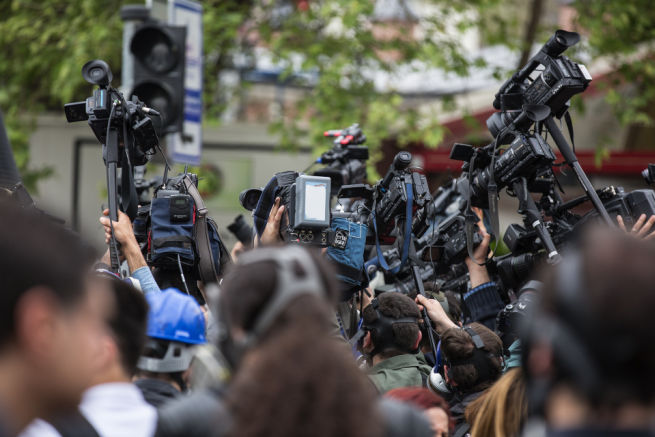Are you an author who wants to get better at media interviews? Do you feel like you freeze up or don’t know what to say when talking with media professionals? Does the thought of it make you perspire? If so, you need media training.
Here are a few reasons why media training is important for authors:
- It can help you feel more confident when talking with the media.
- You will learn how to communicate your message effectively.
- It can help you deal with difficult questions from the media more effectively.
- You will learn how to prepare for different types of media interviews.
First, it’s important to understand what media training is and what it isn’t. Media training is not about teaching you how to be a journalist or how to write a press release. Instead, media training is all about teaching you how to effectively communicate with the media.
Authors who want to be seen as polished professionals need training. It is not something you are born with. You must learn how to manage your image, speak confidently on camera, project the right attitude and energy, as well as how to stay calm under pressure, and project an engaging and likable persona. Receiving media coaching specific to your needs and goals is also important.
There will be times when you are faced with difficult questions from the media. While it’s impossible to predict every question that might be asked, there are some general strategies you can use to prepare for and handle these situations.
- Try to anticipate the types of questions that might be asked and think about how you would like to respond.
- When you are presented with a challenging question, stay calm and focused, and don’t be afraid to take a brief pause before answering.
- Be clear and concise in your responses.
- Avoid getting defensive or making excuses. If you handle the situation gracefully, you’ll come across as professional and helpful, even in the face of tough questions.
Media training provides authors with the necessary tools to help ace their next media appearance, whether it’s an interview on a morning show or evening news program, or a speaking engagement at a conference. Here are some tips on how to prepare.
- Do your homework: Be sure to research the media outlet you’ll be appearing on, as well as the specific format of the interview. This will help you understand what to expect and enable you to tailor your message accordingly.
- Develop key messages: What do you want to say during the interview? Craft three to five key messages that you can deliver confidently and effectively, no matter what questions are asked.
- Prepare for tough questions. A media trainer can help you anticipate difficult questions and develop strategies for handling them gracefully.
- Practice, practice, practice: The more prepared you are, the more relaxed and natural you’ll appear on-camera. So don’t forget to practice before the big day!
- For an on-camera interview, you’ll want to dress the part and make sure your hair and makeup are flawless. You’ll also want to be aware of your body language – sit up straight and make eye contact with the interviewer. And finally, remember to keep your answers short and sweet.
- Audio interviews, whether it’s a podcast or a radio interview, present their own set of challenges. First of all, you won’t be able to rely on your visual cues to convey your message. Instead, you’ll need to focus on using strong verbal cues. This means speaking clearly and at a moderate pace. You’ll also want to avoid using industry jargon that listeners might not understand. And you must be careful not to step on the host, meaning you don’t want to verbally interrupt them or talk over them.
- Print media interviews tend to be more relaxed affairs, but that doesn’t mean you can just wing it. You’ll still need to prepare by coming up with thoughtful answers to common questions. A few sound bites that are easily quotable are necessary. And while it’s okay to sound a bit more conversational in print media, you’ll still want to avoid using slang or overly casual language. It’s also OK in the middle of a print interview to stop and ask the journalist if you’re giving them what they want or if they want you to go in a new direction. This is not something you would do during an audio or on-camera interview.
Bottom line
In today’s media-driven world, it’s more important than ever for authors and experts to be media savvy. And in today’s marketplace of ideas, that’s an essential competitive advantage. Media training will help you feel confident and well-prepared for any media interview that comes your way, and that will help you to sell more books. Good luck!
To your success!
Joanne
P.S. The things that change us when we notice…
#Mediatraining
#AuthorMediaTraining
#BookPublicity
#BookMarketing
If you’d like to receive juicy publicity secrets directly on a regular basis, join the Savvy Sunday Community at the bottom of this page.

